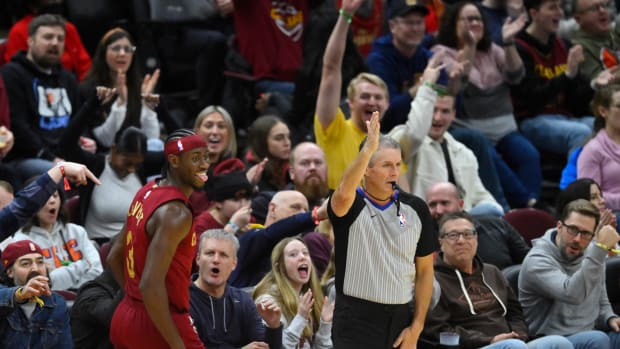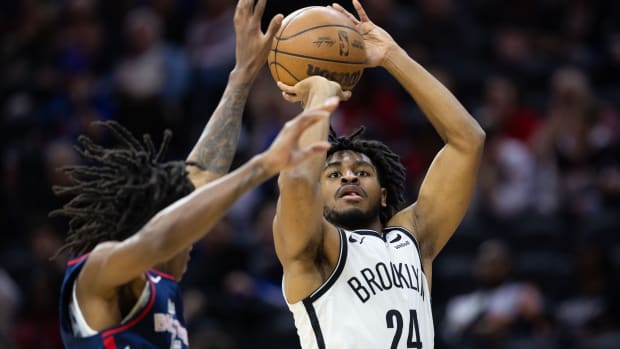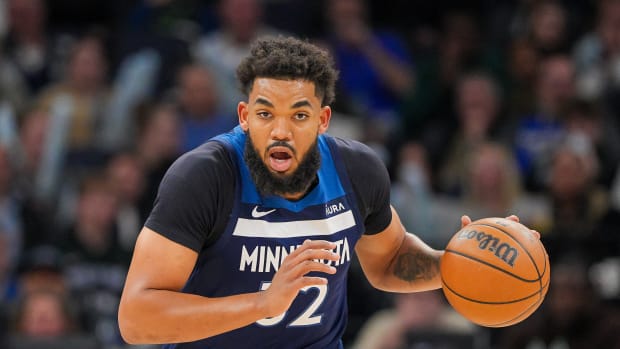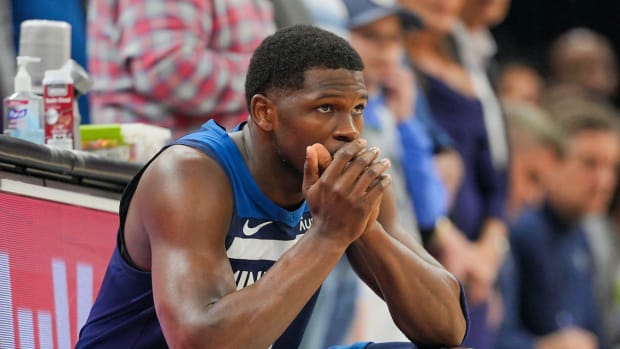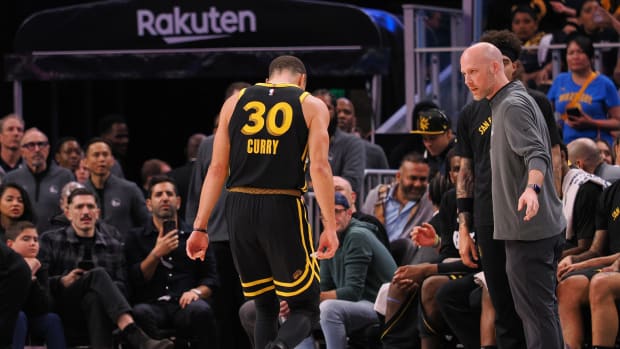Frank Vogel fired: Larry Bird, Pacers make risky move in search for offense
Get all of Rob Mahoney’s columns as soon as they’re published. Download the new Sports Illustrated app (iOS or Android) and personalize your experience by following your favorite teams and SI writers.
Give Frank Vogel a roster of even moderate competence and he will return you a top-10 defense. That quality can be hard to find in a basketball coach, though Pacers team president Larry Bird didn’t let that fact stand in the way of what he ultimately deemed to be the franchise’s best interests. Bird announced on Thursday that Vogel would not be returning as Indiana’s head coach next season just hours after notifying Vogel himself. So ends the fourth-longest coaching tenure in the NBA. Vogel’s five-plus seasons with the Pacers were a rarity in a league that tends to shuffle coaches as a first response to turmoil.
This was not that. Bird didn’t opt to move on from Vogel because of a lost playoff series or disappointing regular season. This was a choice made in service of offensive improvement—a stated goal that Bird has maintained in his regular evaluations of the team. For as sharp as Vogel is, only once did his Pacers finish better than 20th in points per possession: the outlier-laden lockout season in 2011–12. Otherwise, Indiana has had problems stretching a few games or weeks of clean offensive execution into something lasting. These Pacer teams, even at their best, always seemed a push away from toppling over into stalled possessions and cramped spacing.
Bird clearly thinks the solution for those issues would be best implemented by another coach. In doing so he likely underestimates Vogel, who despite his tenure is one the youngest head coaches in the league. Implications of his stubbornness assume Vogel ever had a roster that could actually accommodate change. That has never really been the case, particularly when it came to the kind of small-ball evolution that Bird had in mind. Reinvention along those lines required far more than the additions of Monta Ellis and then-19-year-old rookie Myles Turner. Indiana needed more shooting, it needed more length on the wings, and it needed the star forward (Paul George) at the fulcrum of the idea to actually want to play that style in the first place. Vogel had none of the above.
There is, in the body of work of every coach, an established record of mistakes and misfires. Vogel is no different. Yet firing him on the grounds of what he failed to do offensively, given all that he did accomplish in terms of building an organizational identity and maintaining a high-level defense, would be a poor decision. Bird’s comments suggest that the calculus involved was slightly more complex. The first wave of reaction to a coach’s firing almost always centers on fairness as it relates to past performance. On those terms, Vogel had done more than enough to remain the coach of the Pacers. Those in Bird’s position, however, are wise to at least consider how that kind of standard might play into a franchise’s inertia. Vogel wasn’t let go because he did a poor coaching job. Bird even said as much in Thursday’s press conference. Instead, the ax came for Vogel because Bird thought he didn’t align with the kind of team he ultimately wanted the Pacers to be.
Gallery: SI’s rare photos of Larry Bird over the years
That’s an indictment in its own way, not to mention a poor accounting of Vogel’s talents relative to his peers. Finding a superior coach among those on the market now will be a challenge. Vogel covered up many of his team’s structural weaknesses through earned defensive commitment. Another coach might not be able to exact the same—particularly if, as Bird noted, “sometimes players don’t listen.” One way to attempt offensive improvement would be to add more talented and better-fitting offensive talent. Another is to release Vogel, sacrificing all that he did well for the sake of conceptualized change.
Such risk creates room to quibble with this particular call, even though it’s well within Bird’s purview to outline and chase a specific vision. Once he decided around the All-Star break that Vogel wasn’t the right coach to implement that vision, the choice was already made. No good could come from Vogel hanging on after management had lost faith in his ability to adapt. This decision wasn’t a performance review. It was Bird regarding Vogel as a particular kind of coach and wanting, perhaps foolishly, another. Incompatibility can cripple an NBA franchise. Here the internal perception of it led to a significant change in leadership and a quality coach’s unemployment.































